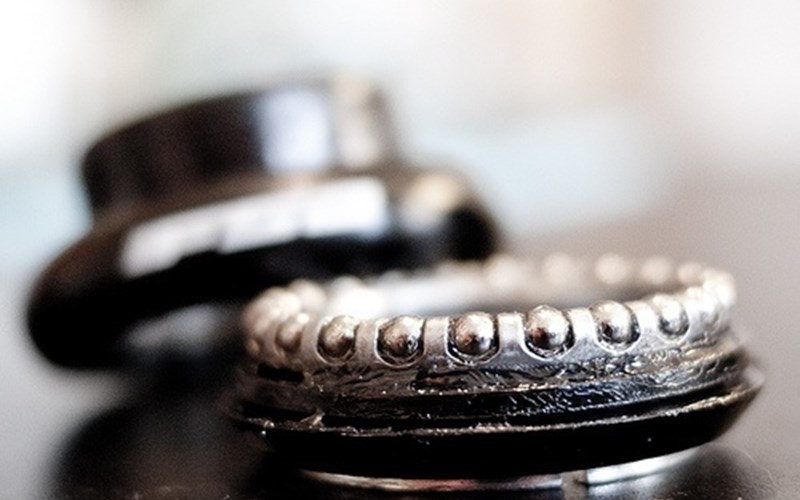It’s true—lubrication missteps can cause overheating or excessive wear in your bearings. And no one wants that. Those factors can lead to bearing failure, which may cost your company time and money to repair.
SO, HOW CAN YOU MAKE SURE THIS DOESN’T HAPPEN TO YOUR BEARINGS?
Photo Credit: “Headset-Grease and ball bearings” by schmilblick is licensed under CC BY 2.0
CHECK THE LUBRICATION TYPE & AMOUNT
Make sure you are using the proper type and amount of lubricant for your specific bearing and application. Lubrication of all bearings is important to maintain proper life (when the bearings can be re-lubricated).
There are many different lubricates used in bearings to provide longevity and proper function of bearings. The variety also makes the selection process very difficult. That’s why we have engineers that can help you narrow your options, and provide you with the correct grease for your application.
Beyond the correct lubricant for your application, you will also need to consider the amount of lubrication the application will require. Our engineers will specify the proper lubrication fill for the specific application, but in general most fill rates are at 25-35% of the available space within the bearing.
Not sure where to start? We complied a quick list of some common lubricants and their traditional applications.
BEARING LUBRICATE TYPES & COMMON APPLICATIONS
GENERAL GREASE (NLGI #2)
- Most common lubricant used in bearings
- Wide temperature range
- Standard bearings come with Polyrex EX grease
- Ex: Motor applications
SYNTHETIC GREASE
- A wide variety of synthetic greases can fit application parameters such as low torque requirements, or low/ high temperatures
- Ex: Aerospace applications
SOLID LUBRICANTS & OILS
- Method of carrying oils while releasing the proper amount over time
- Solid lubricants can be used in many wash down applications.
- A variety of options exist such as solid lubricants that are FDA rated H1 or H2
- Ex: Food and Beverage applications
GRAPHITE (DRY OR SOLID LUBRICANT)
- Offer lubrication at temperatures higher than liquid and oil-based lubricants operate
- Ideal for extreme low torque considerations
- Ex: High speed applications
SPECIALIZED PLATING
- FENCR Process
- A diffused layer of carbon rich iron nitride is applied to the bearings
- Product will not chip or spall.
- Ideal for product that needs to be corrosion resistant. Not FDA rated.
- Ex: Extreme moisture environment
Please contact us for more information about the variety of lubrication options available from Ritbearing.
